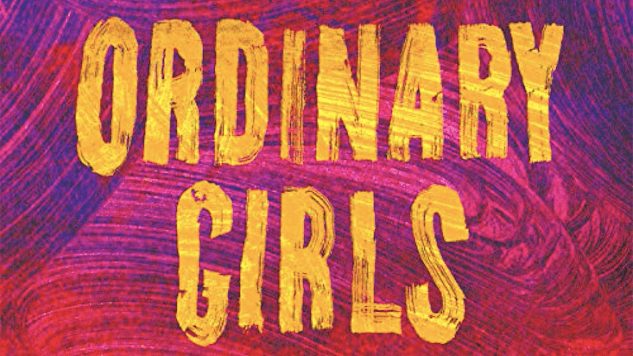Jaquira Díaz’s Powerful Memoir Highlights the Ordinary Lives We Often Ignore

In her new memoir, Ordinary Girls, Jaquira Díaz offers a raw portrait of poverty, addiction and the struggle to escape a cycle of abuse.
Díaz was born in Puerto Rico, where she lived for the first several years of her life with her glamorous but volatile mother, philandering but poetic father, her older brother and her younger sister. When she was still in elementary school, the whole family—including both her grandmothers—moved to Miami Beach. Once there, her mother’s paranoia and rage were diagnosed as schizophrenia, and her mother developed a drug addiction that put Díaz and her sister in increasingly unstable living situations. Her brother continued to live with their father and grandmother.
 As she entered middle and high school, Díaz began engaging in increasingly dangerous behavior; with little adult supervision, she started doing drugs, skipping school and getting arrested for fighting. Her relationship with her developing sexuality was complicated due to a combination of abuse from men, her burgeoning awareness of her own queerness and consensual relationships that moved fast. After dropping out of high school and getting her GED, however, Díaz sought a life that took her away from Miami Beach.
As she entered middle and high school, Díaz began engaging in increasingly dangerous behavior; with little adult supervision, she started doing drugs, skipping school and getting arrested for fighting. Her relationship with her developing sexuality was complicated due to a combination of abuse from men, her burgeoning awareness of her own queerness and consensual relationships that moved fast. After dropping out of high school and getting her GED, however, Díaz sought a life that took her away from Miami Beach.
Díaz’s story is one that, at first glance, could easily be framed as inspiration porn—the tale of an immigrant woman who has gone on to achieve her dream of being a writer. But Ordinary Girls is more than that. At no point does the woman Díaz is today feel entirely distinct from the girl she once was, and at no point does Díaz offer up a simplistic narrative about her own growth. Instead, she’s written a memoir that delves into the reality of intergenerational poverty and impact people have on shaping someone’s identity.
The narrative jumps around in time despite its largely chronological framework, and throughout the book Díaz includes notes about what will soon take place—what will happen to people in one year, two years, farther down the line. At times, this acts as a release valve, an escape hatch in a situation that seems like it can only end poorly. But in others, it serves to flatten time and remind the reader that there are no hard breaks between this teenage girl getting high and picking fights and the woman who wrote this book. There’s no major turning point at which the past is left behind.
There are two dominant threads woven throughout Ordinary Girls. One is what Díaz characterizes as the experience of being viewed by others without truly being seen. Particularly as a teenager, Díaz was exposed and exploited, consumed publicly and judged without being understood as an individual. The second thread is Díaz’s relationship with her mother, who slides deeper into addiction and mental illness. Her mother is also someone who is judged without being understood; just as Díaz is another troubled teen running wild, her mother is another homeless drug addict. The memoir’s power rests in the opportunity it presents to look past those labels and to confront a complicated reality obscured by classism and racism.
Although Ordinary Girls’ fragmented narrative can be occasionally hard to follow, it’s a powerful memoir that demands the reader examine ordinary lives often ignored.
Bridey Heing is a freelance writer based in Washington, DC. More of her work can be found here.







































